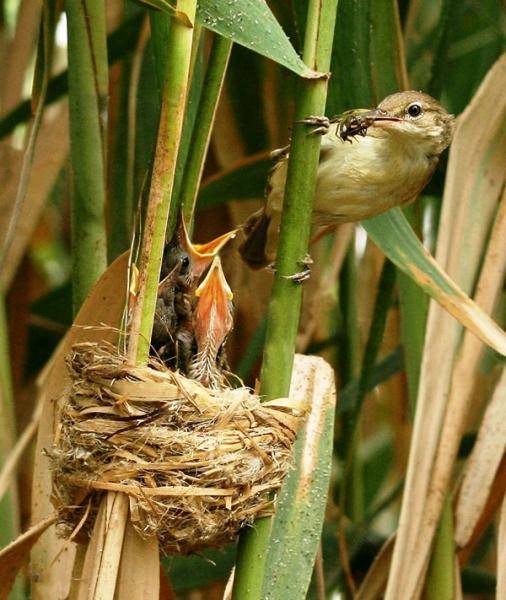
The Basra Reed Warbler Acrocephalus griseldis is listed as Endangered by the IUCN, and its breeding range is largely restricted to the Mesopotamian Marshes in southern Iraq. In many ways it is a typical Acrocephalus warbler inhabiting reedbeds and marshy habitats, making itself known by a loud distinct song or call. So who would have guessed such a bird would have been at the centre of so much controversy in recent months? The reasons for such controversy are covered in the following published articles in the Zoology of the Middle East (here).
Richard Porter, Leo Batten, John Burton, Jon M. Collinson, Peter Cowan, Peter Kennerley, Guy M. Kirwan, R. G. Newell, David Pearson, Roger Riddington, Mudhafar Salim, Robert Sheldon, Derek Scott & Martin Woodcock (2015a): Towards a better understanding of Basra Reed Warbler Acrocephalus griseldis (Aves: Passeriformes: Acrocephalidae) ecology? A comment on Al-Sheikhly et al. (2013), Zoology in the Middle East, Volume 61, Issue 2, pp 190-192
Omar F. Al-Sheikhly, Iyad Nader & Filippo Barbanera (2015): A response to the comment of Porter et al. (2014) on “Breeding ecology of the Basra Reed Warbler Acrocephalus griseldis (Hartlaub, 1891) in Iraq (Aves: Passeriformes: Acrocephalidae)”, Zoology in the Middle East, Volume 61, Issue 2, pp 193-199
Richard Porter, Leo Batten, John Burton, Jon M. Collinson, Peter Cowan, Peter Kennerley, Guy M. Kirwan, R. G. Newell, David Pearson, Roger Riddington, Mudhafar Salim, Robert Sheldon, Derek Scott & Martin Woodcock (2015b): Rejoinder to the Response of Al-Sheikhly et al., Zoology in the Middle East, Volume 61, Issue 2, p 200
OSME, along with the co-authors to Porter et al (2015a,b), were determined to bring the unsubstantiated claims concerning this species to public attention. The Basra Reed Warbler is listed as Endangered, this is the second most severe conservation status for wild populations according to the IUCN threat classification system. Whilst the threat status should give us cause for concern, there are numerous examples from around the world, where species have had their status improved through targeted conservation actions based on sound science. In our opinion, the claims made in the Zoology in The Middle East research paper lack scientific credibility, and that can’t be a good thing for the Basra Reed Warbler.
We were pleased with the interest in the original blog post which was widely circulated on social media that led to significant discussions via email and other channels. However, it was disappointing that the authors of the original paper refused to engage in any scientific debate, and weren’t prepared to counter any of the concerns raised. It seems unusual to me that field biologists don’t wish to discuss their research, especially when the methods and findings are allegedly so ground breaking (sexing Acrocephalus warblers by sight is a methodological advance in its own right and I would love to know how to assess polygny without individually recognisable birds).
We invited Max Kasparek, Editor-in-Chief of Zoology in the Middle East, to get involved in the discussions but the invitations were declined, and similar invitations were made to senior staff at the publishers Taylor & Francis. The response was that as the opportunity had been made to publish our comments and rejoinder then the debate had been had, and the outcome published for the record. Whilst the concerns raised are certainly published in Zoology in the Middle East, I remain surprised that in the light of such significant concerns the Editorial team didn’t go further in retracting the paper.
The other losers, although in many ways potential winners, are the Iraqi ornithologists and conservationists who too expressed their considerable concerns, and wanted to see high scientific standards upheld in their country. Indeed a most laudable aim that OSME shares, but feel that on this occasion we have been let down by those who should aspire to better standards.
OSME would like to thank all of those who stimulated discussion on this issue, and along with the co-authors to Porter et al we will continue to pursue this matter, and where appropriate, continue to highlight the unsubstantiated claims made by Al-Sheikhly, Nader & Barbanera (2013). Let’s all hope the recovery of the Basra Reed Warbler is not compromised due to such poor science.
Dr Rob Sheldon
Chairman, OSME
